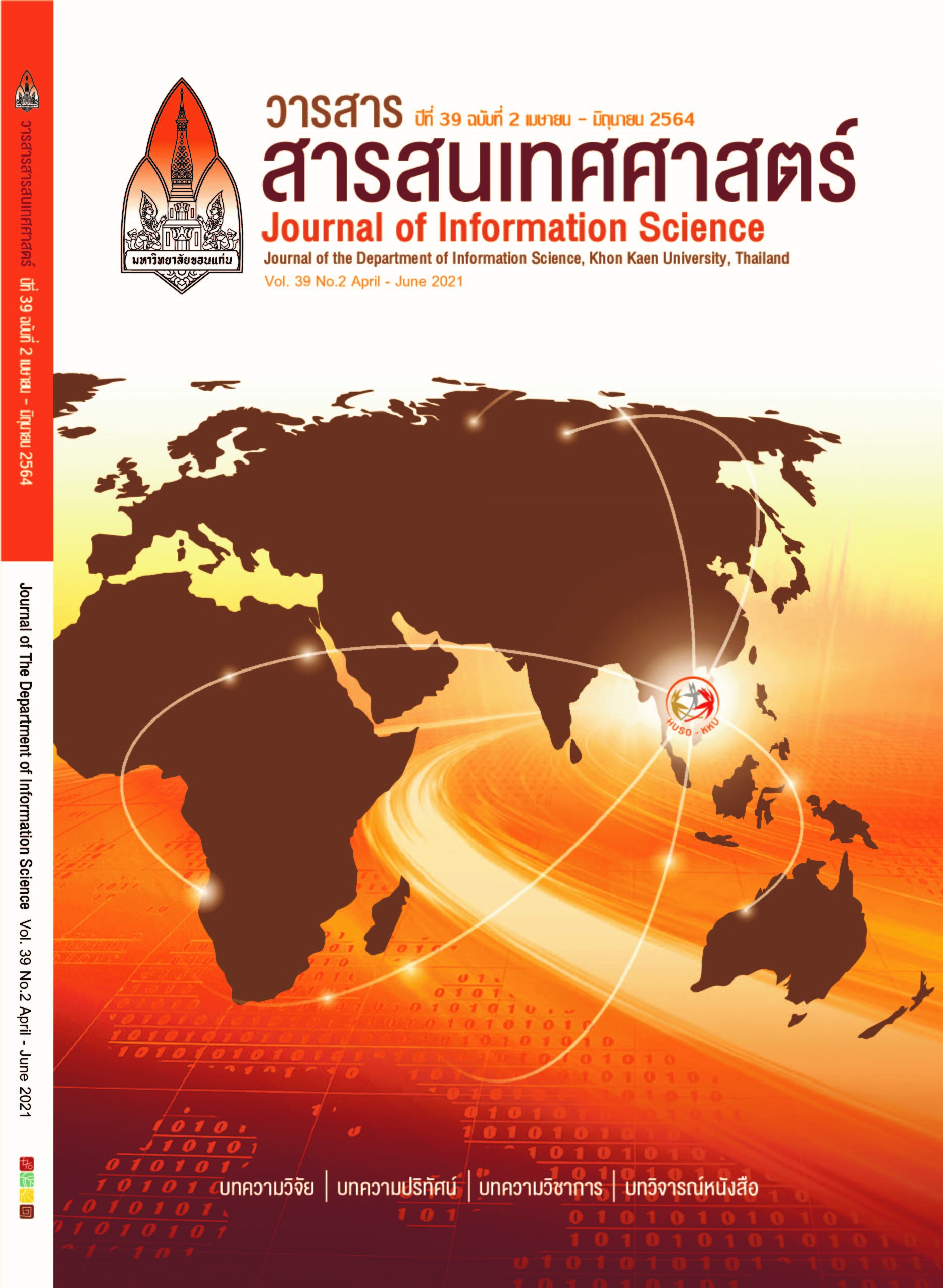The Development of Mobile Applications for Korat Dialect Proverbs Learning of Primary 6 Pupils in Nakhon Ratchasima Municipality
DOI:
https://doi.org/10.14456/jiskku.2021.7Keywords:
Mobile application, Folk proverb, Korat dialectAbstract
Purpose of the study: This research focuses on the development of a mobile application for Korat dialect proverb learning of primary 6 pupils in Nakhon Ratchasima municipality.Methodology: The ADDIE Model is used for developing the mobile application which is thereafter tested by 100 Primary 6 pupils in Nakhon Ratchasima municipality.
Main findings: The developed mobile application for learning Korat dialect proverbs can be used at anywhere and anytime and with the Android operating system. The study sample were, at the maximum level, satisfied with the application in its design (Mean = 4.67 and S.D. = 0.40), capability (Mean = 4.65, S.D. = 0.51), and overall (Mean = 4.67 and S.D. = 0.41). More than half of the students express their additional viewpoints that this mobile application is a good device which makes their learning more enjoyable and easier. In addition, it helps them be exposed with more Korat local proverbs. Also the students’ post test scores are statistically significant higher than the pre-test ones at .01.
Application of this study: This paper provides a contribution to the future investigation and development of mobile application for learning other dialect proverbs.
Downloads
References
Chaihao, J. (2016). Development of basic asian languages application on greeting in android tablet for Matthayom 2nd students. (In Thai). Master thesis in Educational Communications and Technology, Educational Technology, Kasetsart University.
Chen, X. (2016). Evaluating language-learning mobile apps for second-language learners. Journal of Education Technology Development and Exchange (JETDE). 9(2), 39-51.
Dokput, P. (2013). Mobile Learning. (In Thai). Journal of Southern Technology, 6(2), 85-93.
Gangiamaran, R. & Pasupathi, M. (2017). Review on use of mobile apps for language learning. International Journal of Applied Engineering Research. 12(21), 11242-11251.
Indiana State University. (2016). ADDIE Model. Retrieved 27 September 2016, from http:// www.indstate.edu/education/iits/addie-model
Kemp, J.E., Morrison G.R., & Ross S.M. (1998). Designing effective instruction. Upper Saddle River, NJ: Merrill.
McGriff, S.J. (2000). Instructional System Design (ISD): Using the ADDIE Model. Instructional Design Models. 226 (14): 1-2.
McQuiggan S., Kosturko L., McQuiggan J., & Sabourin J. (2015). Changing education with mobile learning. In F.D. Roosevelt (Ed.), Mobile learning a handbook for developers, educators, and learners. North Carolina, USA: SAS Institute Inc.
Metkarunchit, M. (2009). Korat Dictionary. (In Thai). Nakhon Ratchasima: Nakhon Ratchasima Provincial Administrative Organization.
Nakhon Ratchasima City Municipality. (2020). Nakhon Ratchasima Municipality’s Information. (In Thai). Retrieved 7 March 2021, from https://drive.google.com/file/d/1XszqKL zlU4 wiKnLhZ2TK5JGZLkdRAW5w/view
Naksuk, Y. (2018). Thai dialect and local literary works Unit 1-8. (In Thai). Nonthaburi: The University Press Sukhothai Thammathirat Open University.
Promma, P. (2016). Development of the three-dimensional role-playing games application for develop learning skill of English vocabulary for low knowledge English of Prathomsukda 2 students. (In Thai). Master thesis in Educational Communications and Technology, Educational Technology, Kasetsart University.
Putthasatien, K., & Songnok, T. (2019). Analysis of consonants, vowels, and tonal pronunciations in Korat dialect for mapping with GIS. (In Thai). Retrieved 10 February 2021, from http://www.koratculture.com/koratsound/research.php?fbclid= IwAR2hNlK8b2BfJi-16r9wN14Mn26JRCcjKctvKB32qBbEAXo-G9OiMRWrzo4
Ratan Phoka, W. (2018). Thai dialect and local literary works Unit 18. (In Thai). Nonthaburi: The University Press Sukhothai Thammathirat Open University.
Srisa-ard, B. (2002). Basic research. (In Thai). (7th ed.). Bangkok: Suweeriyasan.
Thankunkaew, Y. (2014). The Study of Mobile Applications Usage of The Student in Ayutthaya Province. (In Thai). VRU Research and Development Journal Science and Technology, 9(3), 15-24.
Uitragool, P. (1995). Korat Good Things, Volume 1 (Humanities). (In Thai). Nakhon Ratchasima: Arts and Cultural Center, Nakhon Ratchasima Rajabhat Institute.
Yangkratok, S. (2009). Korat Dictionary. (In Thai). Nakhon Ratchasima: Nakhon Ratchasima Provincial Administrative Organization.








